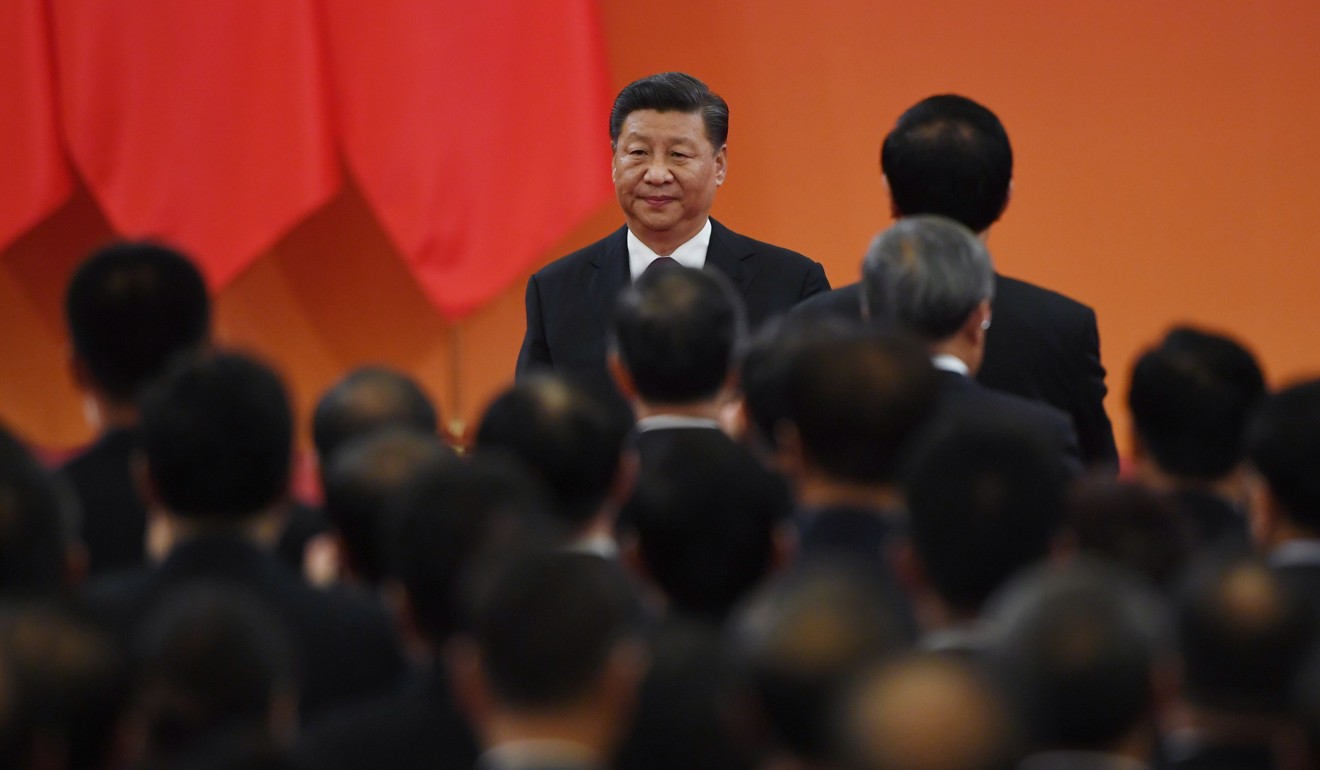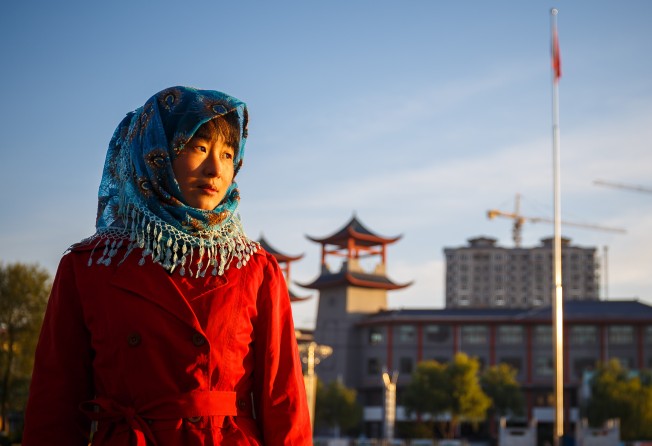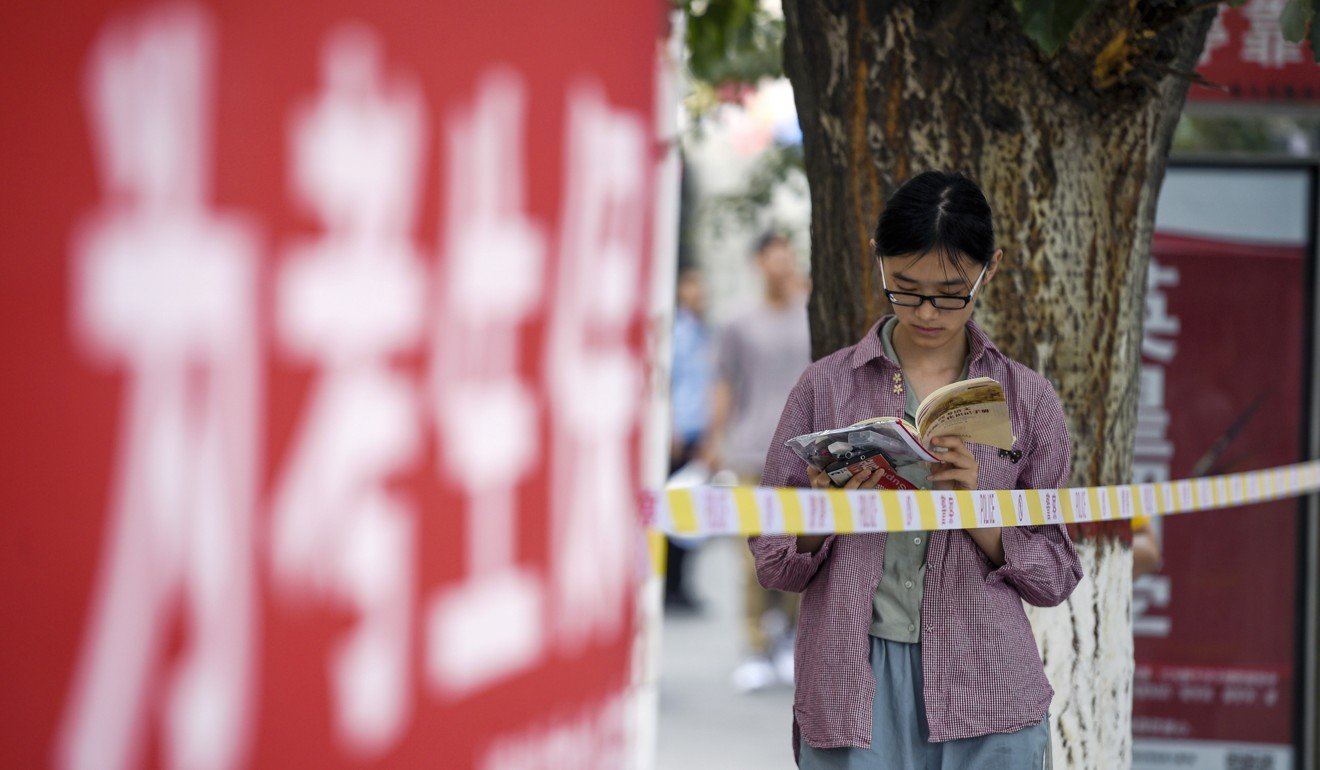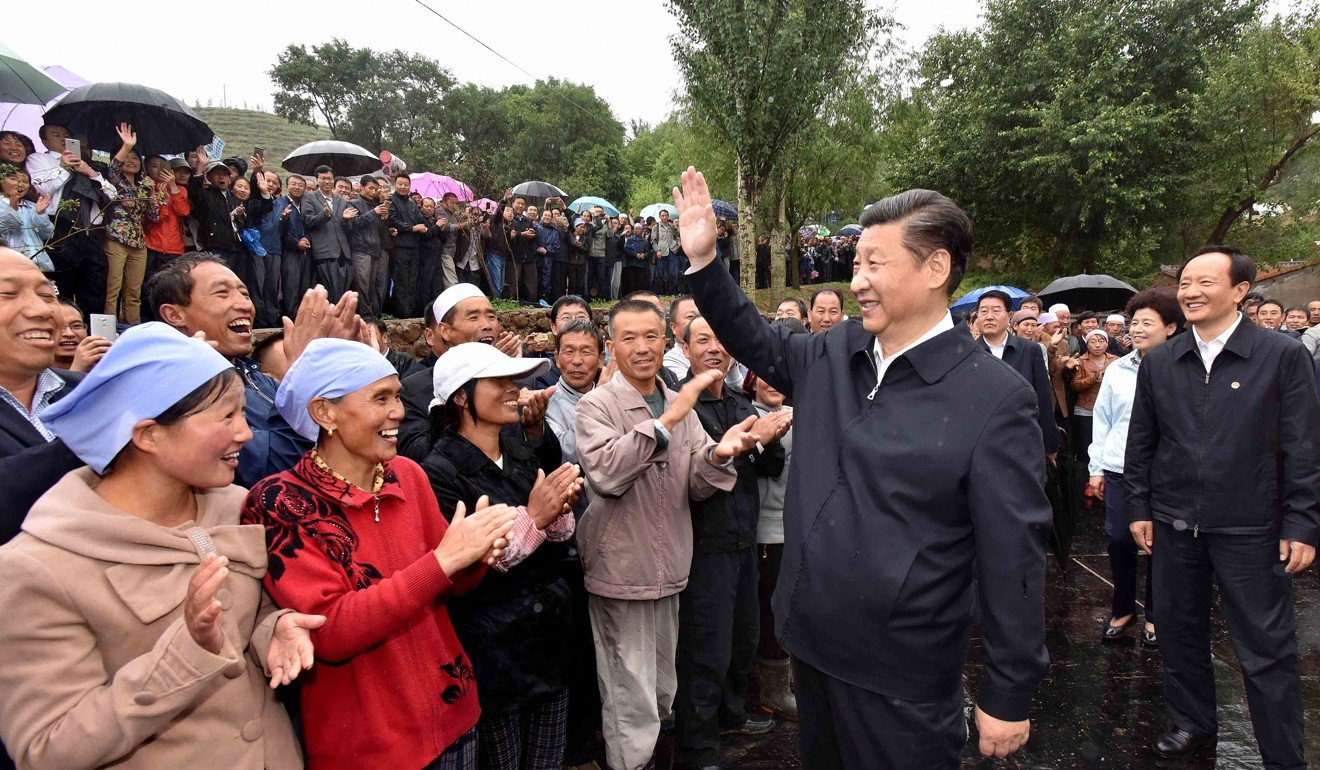
From Xinjiang to Ningxia, China’s ethnic groups face end to affirmative action in education, taxes, policing
- Preferential policies – seen by Han Chinese as giving ethnic minorities unfair benefits – are changing
- Police crackdown on those who abuse the law may also be on the way, as campaigns stressing national identity are expanded

China is set to scale back its affirmative action policies for ethnic minorities, which could result in curbs on education opportunities as well as removal of tax benefits and other subsidies for as many as 110 million people. That’s more than four times the population of Australia.
A police crackdown on ethnic groups that abuse the law could also be coming, along with tougher anti-corruption measures. In tandem, the state will expand campaigns that stress national identity over ethnic roots, a drive that has been spurred by the widely reported conflicts with Muslim communities in the far western Xinjiang region.
Chinese President Xi Jinping has thrown his weight behind the move. In a speech in September, he said “national role models” were needed for ethnic unity and progress. “All citizens of all ethnic groups are equal before the law,” he said.
Ethnic minority affairs have been at the centre of heated and controversial debates in China for several years, not least because Han Chinese have increasingly complained about what they see as unfair benefits and subsidies handed out to minorities. The South China Morning Post has learned that Beijing ran studies in the past two years to assess the impact and repercussions of the policy changes. Some provinces have already started to make the shift, especially in education fields.

The existing policies amount to “reverse discrimination” on Han Chinese, said Mei Xinyu, a researcher at the Ministry of Commerce. “[The ethnic minorities] receive bonus points in all national exams for entering high school, colleges, civil service and higher level education. From birth to death, they have so many privileges,” he said on Weibo, China’s Twitter-like social media platform.
Affirmative action in education is perhaps the most controversial of the policies and is also open to wide abuse. Ethnic minority students receive bonus marks when they sit the all-important college entrance exams, and this has led to Han Chinese fraudulently trying to change their ethnicity to take advantage.
In addition, Beijing allowed tax revenues to stay in minority regions for investment in local infrastructure and ethnic groups were also seen as receiving more lenient treatment by law enforcement for crimes such as drug trafficking. All that is now set to change.
Affirmative no more
Preferential policies for ethnic minorities are already being rolled back in a number of regions, according to a Beijing-based researcher specialised in ethnic minority issues.
“In college entrance exams, a number of provinces this year scrapped the practice of adding extra marks for students from ethnic minority backgrounds, while other places reduced the additional marks by half,” said the researcher, who asked that his name not be used because of the sensitivity of the issue.
One example of this is in the Ningxia Hui autonomous region in the northwest, where students of Hui ethnic background and others receive an extra 10 to 30 points on their college entrance exam. Ningxia will abolish the practice next year, according to a report by state tabloid Global Times.

Criminal and corruption cases involving ethnic minorities were also in for different treatment, said an ethnic affairs researcher in western China.
“In regions beset by drug trafficking, convicted members of ethnic groups often receive lighter sentences than their Han counterparts, but this is changing,” said the researcher, who also declined to be named.
Both of the researchers said that when it came to corruption, Beijing was cracking down on cadres regardless of their ethnic background.
“Corruption among officials from ethnic groups in Tibet and Xinjiang has been a thorn in the side of the Communist Party because of worries about stability in the regions, but we should now expect more heads to roll among ethnic minority officials,” the Beijing researcher said.
Again, that’s already happening. Nur Bekri – an ethnic Uygur, former chairman of the Xinjiang region and head of the National Energy Administration – was detained in a corruption investigation in September last year and this month sentenced to life in prison by a court in Shenyang, Liaoning.
Gao Zhenyu, an ethnic Hui and former head of the Religious and Ethnic Affairs Commission in the Ningxia Hui region, was placed under investigation for alleged “serious violations of law and discipline” in July this year.
Xi’s laws for all
The Chinese president’s speech on September 27 was a significant statement that showed how Beijing’s policy towards ethnic groups was shifting, said James Leibold, an associate professor and researcher into China’s ethnic affairs at La Trobe University in Melbourne.
Xi was quoted by Xinhua as saying, “We must make sure all are treated equally and in accordance to the law, ensure citizens of all ethnic groups enjoy equal rights and perform their duties on an equal footing.”
The speech was “the most formal and comprehensive statement” of his views on ethnic policy published by state media, said Leibold, who added that it was the first time Xi had elaborated on the policy since the 2014 Central Ethnic Work Forum.

China’s approach to ethnic groups under former presidents Jiang Zemin and Hu Jintao focused on economic development in deprived regions, while Xi was stressing intensive educational and cultural propaganda work and Chinese culture as a core foundation of the nation, Leibold said.
“Another signature of Xi’s approach is the effort to use the legal system to protect territorial sovereignty and ethnic unity as well as the equality of everyone before the law,” he said.
“That signals an important stepping back from the preferential policy, which are the cornerstones of regional ethnic autonomy.”